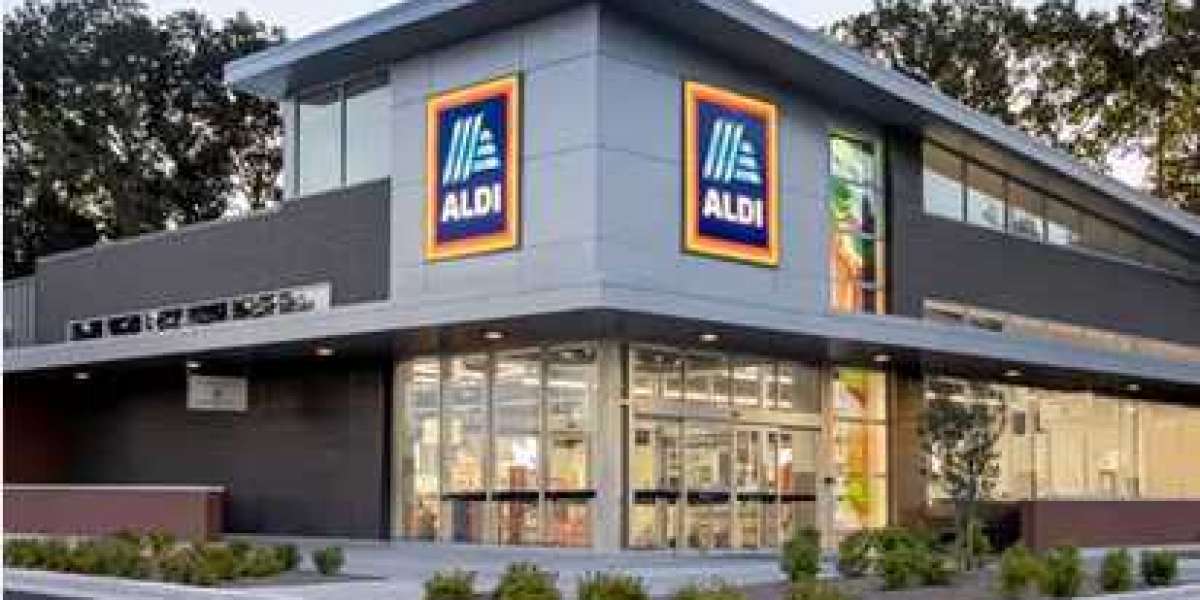As the grocery retail landscape evolves, ALDI has emerged as a formidable player, known for its low-cost model and efficient operations. This German-based supermarket chain has successfully expanded its footprint across various regions, particularly in the United States, where it continues to attract customers with its value-driven offerings. For investors and real estate professionals, understanding the key markets for ALDI real estate opportunities is essential for capitalizing on the growth trajectory of this retailer. This article delves into the factors influencing ALDI's expansion, identifies promising markets, and highlights the importance of strategic real estate investments.
ALDI’s Business Model: A Brief Overview
Before exploring the real estate opportunities associated with ALDI, it is crucial to understand its unique business model. ALDI operates a no-frills grocery store format that focuses on efficiency and cost savings. By offering a limited selection of private-label products, reducing overhead costs, and employing a streamlined supply chain, ALDI can pass on significant savings to its customers.
This model has proven successful, particularly in times of economic uncertainty when consumers are more price-conscious. The company’s commitment to providing quality products at affordable prices has paved the way for rapid expansion across various markets. With plans to open new stores regularly, ALDI presents numerous real estate opportunities for investors looking to capitalize on the grocery sector's growth.
Factors Driving ALDI’s Expansion
ALDI's expansion strategy is influenced by several key factors that present lucrative real estate opportunities. Understanding these factors can help investors identify potential markets for growth.
1. Demographic Trends
Demographic shifts play a significant role in retail development. ALDI has strategically targeted areas with growing populations, particularly in suburban regions where families are seeking affordable grocery options. As more consumers prioritize value and convenience, markets with increasing population density are ideal for ALDI's expansion.
2. Economic Conditions
The overall economic climate significantly impacts consumer spending habits. During economic downturns, consumers often turn to discount retailers like ALDI for their grocery needs. Conversely, when economic conditions improve, ALDI's ability to offer quality products at competitive prices continues to attract a loyal customer base. Identifying markets with strong economic indicators can help investors pinpoint areas where ALDI is likely to succeed.
3. Competitive Landscape
ALDI typically enters markets with limited competition from other discount grocery stores. By analyzing the competitive landscape, investors can identify potential gaps in the market that ALDI could fill. Areas with high demand for affordable grocery options but few existing competitors present excellent opportunities for ALDI real estate development.
Key Markets to Watch
Now that we've established the factors influencing ALDI's expansion, let's explore some key markets that show promise for ALDI real estate opportunities.
1. Midwest Markets
The Midwest region of the United States has been historically favorable for ALDI's growth. States like Illinois, Ohio, and Michigan have a strong presence of ALDI stores, and the company continues to expand its footprint in these areas. The Midwest is characterized by a mix of urban and suburban populations, making it an ideal market for ALDI's business model.
Investors should keep an eye on emerging neighborhoods within these states, particularly those experiencing population growth and infrastructure development. As families move to these areas in search of affordable housing, the demand for budget-friendly grocery options will likely increase, creating a ripe environment for ALDI expansion.
2. Southern States
The Southern U.S. has witnessed significant population growth over the past decade, with states like Texas, Florida, and Georgia leading the charge. ALDI has made strategic inroads into these markets, opening new stores to cater to the rising demand for budget-friendly grocery options.
Texas, in particular, has become a focal point for ALDI's expansion efforts. The state’s booming economy and diverse population present an opportunity for the chain to attract a wide range of customers. Investors should monitor cities like Austin, San Antonio, and Dallas-Fort Worth, where demographic trends indicate a growing need for affordable grocery stores.
3. Emerging Urban Areas
As urbanization continues, many cities are experiencing a shift in demographics, with young professionals and families moving into urban centers. In these emerging urban areas, traditional grocery stores may not meet the needs of price-sensitive consumers. ALDI has the potential to fill this gap by establishing stores in locations that cater to these populations.
Investors should focus on urban areas undergoing revitalization or development, where ALDI can leverage its low-cost model to attract customers. Neighborhoods experiencing an influx of residents and rising housing prices are prime candidates for ALDI real estate opportunities.
4. Suburban Expansion
In recent years, there has been a noticeable trend of consumers gravitating toward suburban living. This shift has been accelerated by the COVID-19 pandemic, as remote work has allowed individuals and families to seek larger living spaces outside urban centers. Suburbs often require additional grocery options, making them a prime target for ALDI’s expansion strategy.
Investors should pay close attention to suburban markets near major cities where ALDI can establish a strong presence. Areas experiencing population growth, new housing developments, and increased spending power are ideal for potential ALDI store locations.
Real Estate Considerations for ALDI Opportunities
When exploring ALDI real estate opportunities, several factors must be taken into account to ensure a successful investment.
1. Location
The location of an ALDI store is paramount to its success. Factors such as accessibility, visibility, and proximity to residential areas play a crucial role in attracting customers. Investors should focus on sites that are easily accessible by major roads and highways, ensuring that customers can easily reach the store.
2. Market Research
Conducting thorough market research is essential when identifying potential locations for ALDI stores. This includes analyzing demographic data, consumer behavior, and local competition. Understanding the unique characteristics of each market can help investors make informed decisions about potential real estate investments.
3. Zoning and Regulations
Before pursuing any real estate opportunities, it is crucial to understand local zoning regulations and building codes. ALDI stores typically require specific permits and zoning classifications, which can vary by location. Investors should work closely with local authorities to ensure compliance and streamline the approval process.
4. Long-Term Viability
Investors should consider the long-term viability of the location they choose for ALDI real estate opportunities. This includes evaluating trends in population growth, economic stability, and potential competition. By assessing the long-term outlook for a market, investors can make strategic decisions that will yield positive returns over time.
Conclusion
In conclusion, ALDI real estate opportunities present a promising avenue for investors looking to capitalize on the grocery retail sector's growth. With its unique business model and strong expansion strategy, ALDI is well-positioned to thrive in key markets across the United States. By focusing on demographic trends, economic conditions, and competitive landscapes, investors can identify lucrative opportunities for ALDI real estate.
As the grocery industry continues to evolve, staying informed about market dynamics and emerging trends is essential. For those interested in exploring ALDI real estate opportunities or seeking guidance on retail investments, NNN Trends by Equity Retail Brokers is here to help. Contact us today to learn more about how you can capitalize on the growing demand for ALDI stores and other retail investment opportunities!






